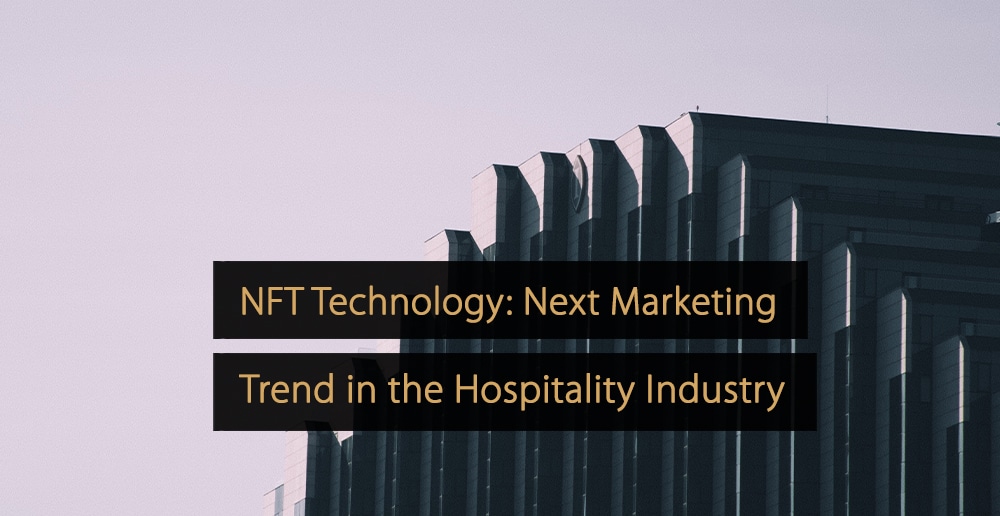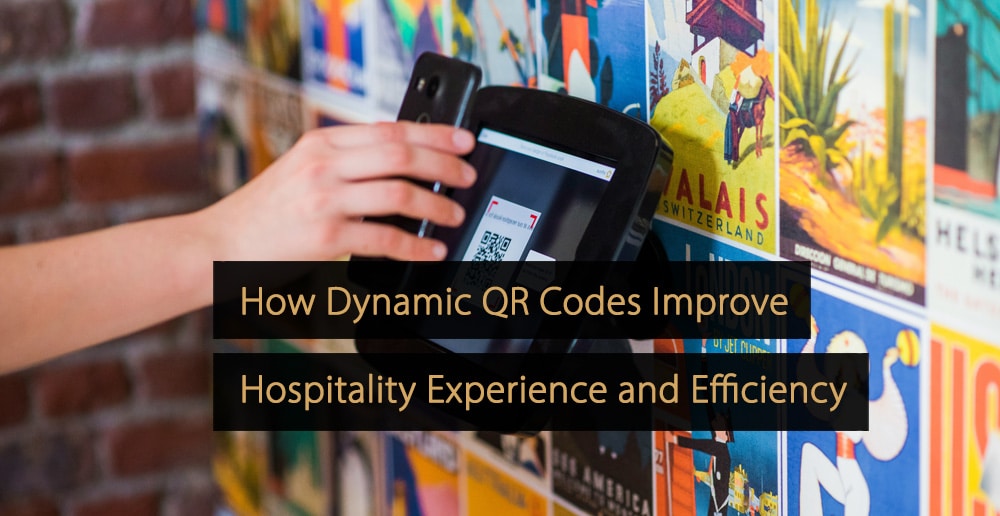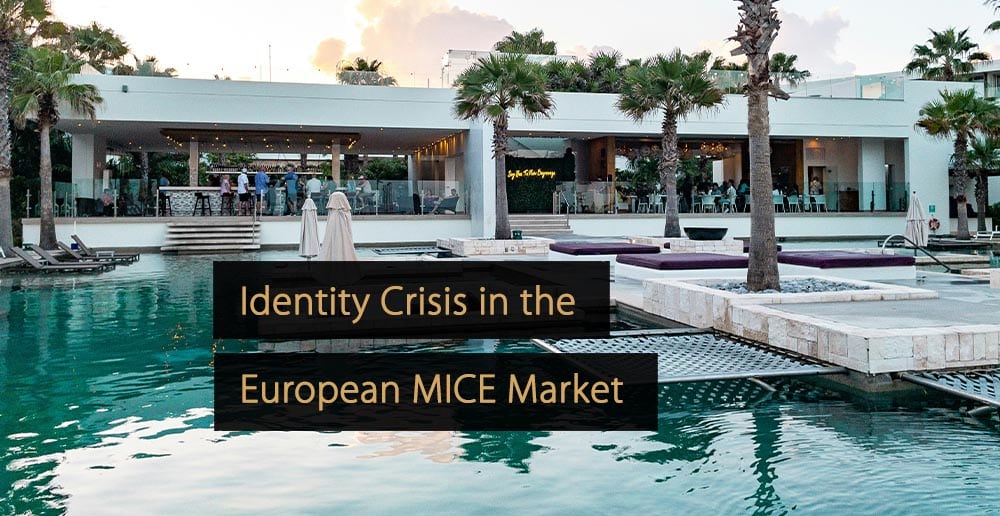Non-fungible tokens, or NFTs, are emerging as one of the most significant marketing trends, and NFT hospitality offerings are also growing as businesses come to recognize their full potential. In this article, you can learn about NFTs, their advantages, their marketing potential, and their specific uses within hospitality.
Table of Contents:
- What is a Non-Fungible Token (NFT)?
- NFT Hospitality Offerings and the Metaverse
- Why NFTs Are Great Marketing Tools for the Hospitality Industry
- What Are Some Examples of NFT Hospitality Marketing
- NFT Hospitality: Brands That Have Embraced NFTs
- NFT Hospitality Marketing and Blockchain Technology
- NFT Hospitality Technology and Other Hospitality Technology Trends
What is a Non-Fungible Token (NFT)?
A non-fungible token, or NFT, is the name given to a digital representation of a physical asset. The technology relies on cryptography and blockchain technology, providing each NFT with its own unique metadata. No two NFTs are identical, so digital files can be sold as completely unique items that cannot be duplicated.
While cryptocurrencies like Bitcoin use similar blockchain technology, these cryptocurrencies are fungible or mutually interchangeable. This means that, for example, one Bitcoin can be traded for another Bitcoin. With NFTs, however, these are non-fungible, meaning they cannot be traded at equivalency in this way.
With NFTs, because they are non-fungible, one NFT cannot be copied or turned into several NFTs, as with most digital files. It is this uniqueness that provides value. NFTs can be used to transfer ownership of everything from original digital artwork to photographs, video content, or audio, allowing businesses to explore NFT hospitality options.
NFT Hospitality Offerings and the Metaverse
The metaverse is the term used to describe virtual worlds, or digital spaces, which provide options for social interactions, often using technology like blockchain, virtual reality, and digital metaverse avatars. NFTs and NFT hospitality offerings can also have value in metaverse spaces, with examples including in-game items and virtual real estate.
You can read the “Metaverse Opportunities for the Hospitality Industry” article to learn more about the metaverse, how it works, what technology is involved, and how it can relate to the hospitality industry.
Why NFTs Are Great Marketing Tools for the Hospitality Industry
NFT hospitality marketing remains an under-explored area, as the technology is still relatively new. Nevertheless, these tokens have great potential within the hospitality sector. They can help businesses to connect to their audience, promote new products and services, increase brand awareness, and partner with other companies or artists.
Non-fungible token hospitality options include giving away digital artwork as a prize, selling NFTs in partnership with local artists, and other similar promotions. However, the technology can actually be used in other ways too. For instance, membership cards or loyalty cards could be sold as NFTs, instead of physical cards.
Alternatively, digital collectibles could be sold alongside hotel rooms to generate more interest and incentivize bookings. NFTs can be divided into two main categories: collectible digital items and digital assets with a clear function. The hospitality industry is ideally placed to capitalize on both types.
What Are Some Examples of NFT Hospitality Marketing
Although NFT hospitality marketing is still relatively new, it is quickly emerging as a viable and desirable option. Below, you can explore how NFTs can be used as a hospitality marketing tool.
Advertising Opportunities Inside of Games and Metaverse Virtual Worlds
The metaverse can include games, virtual reality-powered meeting spaces, and a variety of other virtual worlds, which open up the potential for in-game or virtual items to be sold. Some of these items can be sold as exclusive NFTs and even branded with your company name and logo, to increase brand awareness.
However, there are advertising opportunities beyond this too. As an example, you may be able to establish a virtual hotel or restaurant within a digital space, or you could create the digital space and sell virtual real estate.
Partnerships and Collaborations with Digital Art Creators
In addition to the emerging NFT marketing opportunities, non-fungible tokens have helped digital artists sell unique artwork in a similar way to physical art. That said, many artists lack the profile to make money from their work in this way, while many involved with hospitality management lack artistic skills.
Thankfully, this provides an ideal opportunity for hospitality brands and digital artists to collaborate to create a non-fungible token hospitality marketing strategy. Some hospitality brands work with local artists to sell NFTs related to marketing campaigns, while others pay the artists and use the art NFTs as prize giveaways.
Use NFTs for a Customer Loyalty Program
Until recently, NFTs have almost exclusively provided people with collectible digital items like images or audio files. Yet, as the technology becomes more established, businesses are starting to understand that the long-term viability of NFTs requires them to have functional uses beyond this collectible element.
As a form of hospitality technology, NFTs can power customer loyalty programs. Here, each customer is issued an NFT and a permanent and unique blockchain entry with it. This NFT then serves as the customer’s proof of being part of the programs, and relevant data about visits and discounts can be handled digitally too.
Shared Ownership Through NFTs and Blockchain Technology
Finally, another NFT hospitality marketing option that some businesses are starting to explore is the potential to sell shares to members of the public and use NFT and blockchain technology to keep a register of this.
This opens up several possible business models, including community ownership. The NFTs can be used in place of shares and share certificates, with each NFT being a unique share. Alternatively, businesses could explore other options, such as using NFTs to represent physical parts of the hotel premises, such as function rooms.
NFT Hospitality: Brands That Have Embraced NFTs
Although NFT hospitality marketing is still an emerging practice, some brands have already started to capitalize on it. In the sections below, you can learn about some brands that have embraced NFT hospitality trends.
Marriott International NFT Marketing
Marriott International became the first major brand to capitalize on an NFT hospitality marketing strategy by partnering with three well-known digital artists, Erick Nicolay, JVY, and TXREK, to create their own NFTs.
Specifically, the art created by the three digital artists was inspired by Marriott’s marketing campaign, entitled ‘The Power of Travel’. The final products were unveiled for the first time at Art Basel Miami Beach in December 2021, and the unique NFTs were awarded to competition winners attending the event.
Ca’ di Dio Using an NFT Marketplace to Auction Rooms
Ca’ di Dio is a luxury hotel in Venice, Italy. Ahead of the hotel’s opening, the company auctioned off a free one-night stay for one guest to enjoy the property alone, with nobody else around.
However, rather than perform this auction in person, the brand opted to use OpenSea, the largest P2P NFT marketplace in the world. In the process, the hotel also became the first in the world to complete a hotel reservation via NFT technology, and the auction helped the hotel attract international attention.
Flyfish Club – The World’s First NFT Restaurant
Finally, one of the most exciting NFT hospitality marketing examples so far was masterminded by VCR Group, which announced that the Flyfish Club would become the world’s first NFT restaurant. The restaurant allows club members to purchase their membership as a non-fungible token.
Essentially, the NFT takes the place of a more conventional membership card, and the token can be used on a smartphone or digital device to gain entry to the club. Memberships can be purchased using cryptocurrency, and there are multiple membership tiers, each offering its own unique perks. Membership tokens are all unique and cannot be replaced, although they can potentially be leased to friends and family, or sold to others online.
Video: NYC’s first NFT restaurant is ‘first use case of a utility-based project’: FlyFish Club CEO
NFT Hospitality Marketing and Blockchain Technology
You must also understand blockchain technology to fully get to grips with NFT hospitality marketing and its workings. However, while blockchain can play a vital role with NFTs, it can also be used for everything from accepting cryptocurrency payments to authenticating identities and tracking baggage.
To explore blockchain technology further and learn how it works and how it can be deployed by businesses, read the “Blockchain Technology and Its Uses in the Hospitality Industry” article.
NFT Hospitality Technology and Other Hospitality Technology Trends
NFT hospitality technology is an exciting proposition, and many brands will likely look to explore what it can offer in the years ahead. That said, NFTs are just one example of hospitality technology, and there are many other trends you should also try to keep in mind. These include, for example, the rise of voice search technology, and the increased use of robots within hotel and restaurant settings.
You can learn more about these technology trends and several other trends that are either emerging now or set to emerge in the near future by reading “The Latest Technology Trends in the Hospitality Industry”.
NFT technology is disrupting many industries and showing huge promise within marketing, so it stands to reason that NFT hospitality marketing strategies are also gaining traction. Some of the biggest and most luxurious brands in the industry have already started to use NFTs for giveaways, collaborations, and customer loyalty programs, and this development is only likely to expand further in the months and years to come.
More Tips to Grow Your Business
Revfine.com is the leading knowledge platform for the hospitality and travel industry. Professionals use our insights, strategies, and actionable tips to get inspired, optimize revenue, innovate processes, and improve customer experience.Explore expert advice on management, marketing, revenue management, operations, software, and technology in our dedicated Hotel, Hospitality, and Travel & Tourism categories.
This article is written by:
Hi, I am Martijn Barten, founder of Revfine.com. With 20 years of experience in the hospitality industry, I specialize in optimizing revenue by combining revenue management with marketing strategies. I have successfully developed, implemented, and managed revenue management and marketing strategies for individual properties and multi-property portfolios.









One of the most important things to understand about NFTs is that they are not physical objects. They are digital assets that exist on the blockchain. This means that you cannot touch or hold them in your hand. However, this also makes NFTs very secure and tamper-proof.